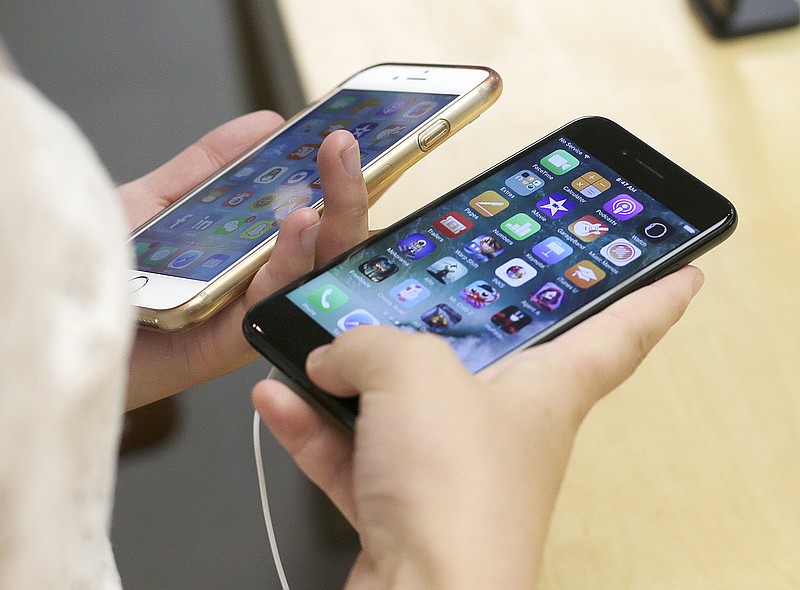SAN FRANCISCO (AP) - Apple is refusing to pay any royalties owed to mobile chip maker Qualcomm for some of the features in the iPhone, escalating a patent feud that has turned the former business partners into bitter adversaries.
The latest twist in the dispute represents a major blow for Qualcomm, which depends on licensing fees for a large portion of its revenue.
Apple's decision to withhold royalties will cost Qualcomm up to $500 million in the current quarter alone, based on revised revenue estimates Qualcomm released Friday.
"This is getting ugly, the level of hostility just went up another notch," said technology analyst Patrick Moorhead of Moor Insights and Strategy.
As retaliation, Qualcomm could seek a court order halting iPhone sales until Apple pays the royalties Qualcomm contends it's owed, Moorhead said.
Qualcomm hasn't threatened to go to that extreme yet, but its top lawyer made it clear Friday that the San Diego company is girding for a fierce fight with its Cupertino, California-based Apple, the world's most valuable company.
"We will continue vigorously to defend our business model, and pursue our right to protect and receive fair value for our technological contributions to the industry," Don Rosenberg, Qualcomm's general counsel, said.
Apple concedes it and its suppliers owe Qualcomm some licensing fees on iPhone sales.
However, Apple believes Qualcomm has been abusing its power in the mobile chip market to charge for royalties on features that aren't covered by its patents.
Qualcomm, in turn, has accused Apple of breaking contracts in an attempt to lower its licensing fees and also interfering in deals negotiated with iPhone suppliers.

